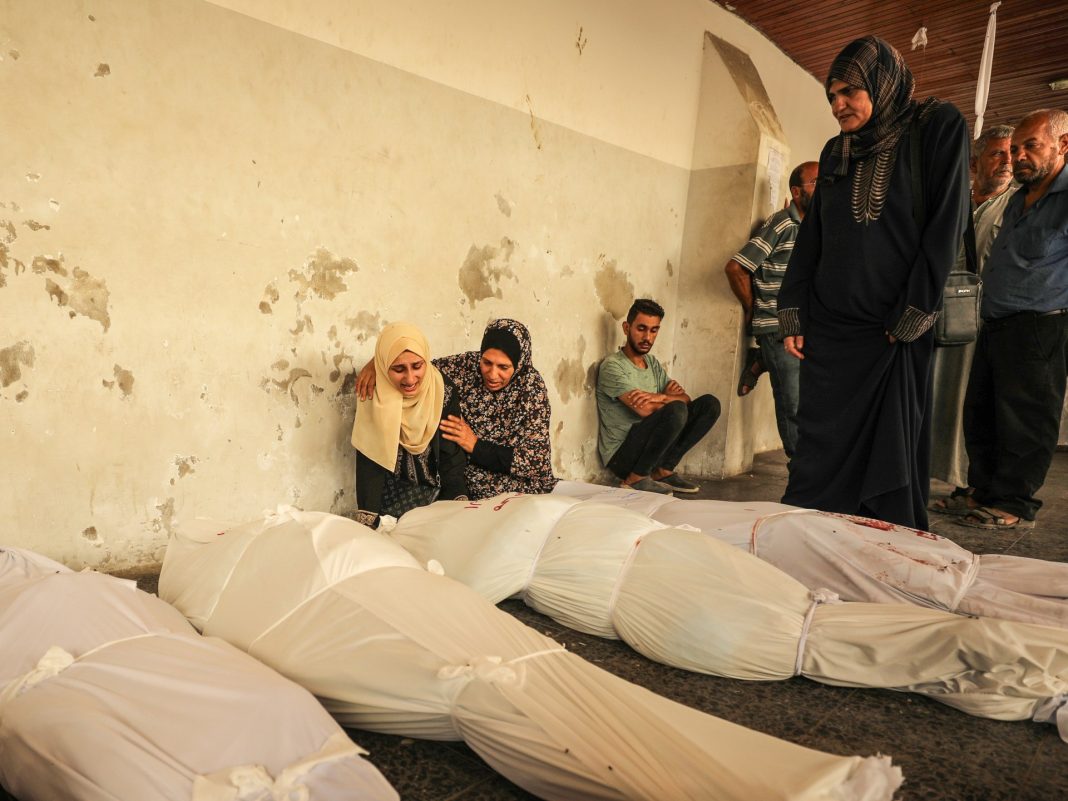The warning, issued in letters sent on Friday to the foreign, business and defence ministers, comes from two groups threatening fresh legal action in the High Court over the export of these parts.
Al-Haq, a Palestinian human rights organisation, and the UK-based Global Legal Action Network (Glan), told the ministers that they, along with arms company executives, could be indicted for aiding and abetting war crimes if they continue to transfer the components.
On 2 September, the UK government announced the suspension of 30 arms export licences to Israel over concerns that the weapons could be used in violation of international humanitarian law in Gaza.
However, the list did not include UK-made F-35 parts, which are sent to third countries and could ultimately end up in Israel. This raised major concerns from arms campaigners and human rights groups who say the warplane, 15 percent of which is made in the UK, has played a critical role in Israel’s offensive.
Shawan Jabarin, Al-Haq’s general director, said Israel has been carrying out “genocidal attacks on Palestinians in Gaza” for nearly a year.
“We know that Israeli air strikes and bombs using F-35 fighter jets have devastated densely populated areas, including shelters for displaced Palestinians,” Jabarin added.
“The insurmountable evidence that Israel is committing violations and international crimes means the UK government can’t feign ignorance.”
In response to the letters, a spokesperson for the Department for Business and Trade said that the global, 20-country F-35 programme has “a significant dependence on the UK, which provides unique and critical components”.
“It is not possible to suspend licensing of components to Israel without undermining the programme overall, including its broader strategic role in NATO and our support to Ukraine,” the spokesperson added.
“We have an unwavering commitment to the security not just of this country but to our allies around the world, especially at a time when we face increased global insecurity and volatility.”
Earlier this week, 39 UN experts cautioned that “the edifice of international law stands upon a knife’s edge”, as most states fail to fulfil their international obligations following the advisory opinion issued by the International Court of Justice (ICJ) in July.
The court found that Israel’s decades-long occupation of the Palestinian territories is unlawful. Although the opinion is non-binding, it carries significant legal and moral weight.
The UN experts said the ICJ had provided “unequivocal directions concerning the responsibilities of states” and urged them to comply with the ruling by imposing full arms embargoes on Israel, among a list of other measures.
On Wednesday, the UK government abstained from voting on a UN General Assembly resolution that endorsed the ICJ’s opinion, which went on to pass overwhelmingly.
Fifteen British NGOs stressed they were “deeply disappointed” by the abstention and called on the government to take “decisive action” two months after the ICJ’s findings.
“The UK must ensure that they do not recognise as lawful, nor aid or assist, the situation created by Israel’s unlawful presence in the occupied Palestinian territory,” they wrote after the vote.
On Friday, Al-Haq and Glan questioned how business secretary Jonathan Reynolds decided to justify the continued transfer of F-35 parts to third countries.
Their concerns echo those of 37 MPs who raised the alarm last week that the government had justified the exemption of the parts using a legal provision that had never been formally invoked before and one they believe requires parliamentary oversight.
They may soon have answers. In the coming weeks, as part of the ongoing judicial review brought by Al-Haq and Glan challenging the arms exports, the government is due to share internal documents outlining its assessment process with the two groups.
The groups noted that if they are not satisfied with the government’s reasoning, they will apply for an interim relief suspension. If granted, this would result in a full suspension of exports to Israel pending further assessments.
